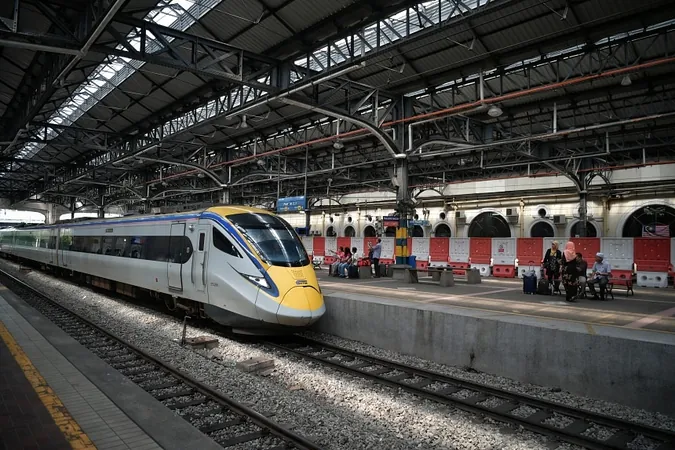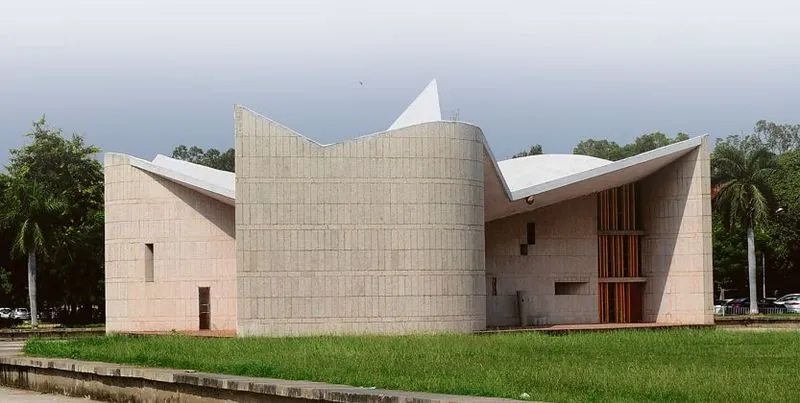
Another Setback for Electric Train Project Linking Johor Bahru and Northern Malaysia
2024-11-03
Author: Arjun
Introduction
KUALA LUMPUR – The much-anticipated Gemas-Johor Bahru Electrified Double Tracking Rail Project (Gemas-JB EDTP), designed to significantly reduce travel time between Kuala Lumpur and Johor Bahru, has encountered yet another delay, missing the October deadline that followed a prior postponement in July.
Project Overview
Originally aimed at extending the current railway line from the Malaysia-Thailand border in Padang Besar southwards through Gemas, the project is facing complications particularly in Segamat, Johor. This district is set to be the first among eleven stops on this new stretch, which will encompass major areas such as Kluang and Kulai before culminating in Johor Bahru.
Current Challenges
The electric train service (ETS) on the vital 26km section from Gemas to Segamat is now anticipated to commence after mid-November, once critical testing of the electrification systems is complete. An official involved in the project, who opted to remain anonymous, highlighted that these safety tests are essential to ensure the wellbeing of train operations. This unanticipated hurdle arises from issues related to the electricity supply necessary to operate the trains, as confirmed by multiple sources.
Construction Details
YTL Construction, in partnership with SIPP Rail, is responsible for the construction of this significant railway link. However, another government insider indicated that the delays are primarily due to YTL’s struggle to finalize the technical aspects of the electric feeder line at the Genuang Railway Station in Segamat. This setback has stalled the energization of the overhead lines, crucial for the operation of electric trains.
Progress Status
While the laying of tracks on the Gemas-JB stretch is reportedly 95% complete, several other tasks, particularly the electrification testing, remain ongoing. The extended project, which originally began in 2017 with a projected completion date of October 2021, has been pushed back multiple times, primarily due to the disruptions caused by the COVID-19 pandemic and land acquisition issues, including resistance from squatters.
Revised Completion Timeline
As it stands, the new target for project completion is set for April 2025. Despite multiple inquiries, neither YTL Corporation nor the Ministry of Transport (MOT) has provided updates regarding the ongoing delays.
Strategic Importance of the EDTP
This electrified rail initiative is a key component of the broader EDTP, initiated in 2011, aimed at transforming the single rail track network along Malaysia’s west coast into a more efficient double rail system powered by electricity. Managed by Keretapi Tanah Melayu Berhad (KTM), this upgrade is essential for enhancing rail infrastructure in the region.
Government Perspective
Despite being less publicized than other monumental rail projects like the East Coast Rail Link and the KL-Singapore High-Speed Rail, the EDTP is nonetheless seen as strategically important by government officials. Johor Menteri Besar Datuk Onn Hafiz Ghazi reiterated in March 2023 that this project and the JB-Singapore Rapid Transit System (RTS) Link are priority developments.
Expected Outcomes
The completion of the Gemas-JB EDTP is expected to bolster freight capacity between key ports like Port Klang and Port of Tanjung Pelapas and improve accessibility between Johor Bahru and central urban centers in Johor – a situation that could spur urban development in targeted areas.
Potential Travel Benefits
Moreover, when implemented alongside the RTS Link, the Gemas-JB line could represent a viable alternative to the contested KL-Singapore High-Speed Rail. With the new ETS service, the travel time from Johor Bahru to Kuala Lumpur could shrink to about 4.5 hours, compared to the current seven-hour journey by diesel train, thus providing a much-needed boost in connectivity for the region. By car, the same trip typically takes upwards of four hours sans stops.
Passenger Expectations
Once finalized in 2025, KTM anticipates that the electric rail service will transport approximately 3,000 passengers daily from Johor Bahru to Kuala Lumpur. Recent data revealed that in the first ten months of 2024, the current diesel train service on the Gemas-JB route recorded a total of 63,607 passengers, underscoring the demand for improved rail connectivity in Malaysia.





 Brasil (PT)
Brasil (PT)
 Canada (EN)
Canada (EN)
 Chile (ES)
Chile (ES)
 España (ES)
España (ES)
 France (FR)
France (FR)
 Hong Kong (EN)
Hong Kong (EN)
 Italia (IT)
Italia (IT)
 日本 (JA)
日本 (JA)
 Magyarország (HU)
Magyarország (HU)
 Norge (NO)
Norge (NO)
 Polska (PL)
Polska (PL)
 Schweiz (DE)
Schweiz (DE)
 Singapore (EN)
Singapore (EN)
 Sverige (SV)
Sverige (SV)
 Suomi (FI)
Suomi (FI)
 Türkiye (TR)
Türkiye (TR)